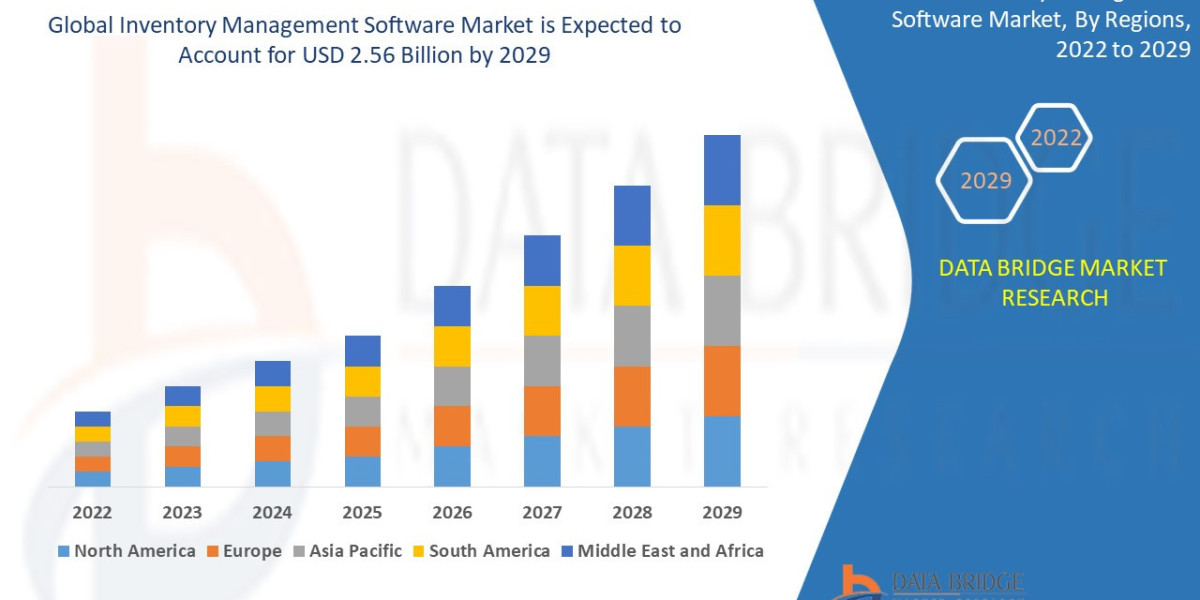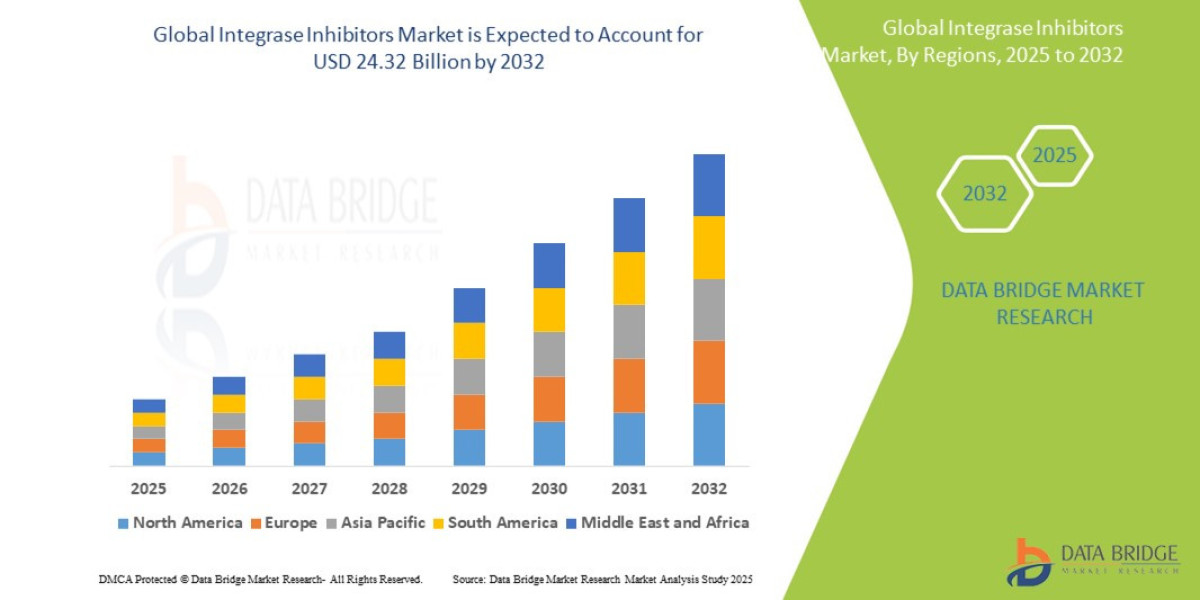"Detailed Analysis of Executive Summary Inventory Management Software Market Size and Share
CAGR Value
Global inventory management software market size was valued at USD 1.85 billion in 2024 and is projected to reach USD 3.10 billion by 2032, with a CAGR of 6.62% during the forecast period of 2025 to 2032.
This Inventory Management Software Market report serves you with the bigger picture of the marketplace as it studies market and the industry by considering several aspects. This market report gives an absolute background analysis of the industry along with an assessment of the parental market. To achieve sustainable growth in the market, businesses must be well-versed with the specific and most relevant product and market information in the Inventory Management Software Market The resources used for collecting the data and information that is included in this report are very trustworthy and range from journals, company websites, and white papers etc.
Being professional and comprehensive, this Inventory Management Software Market report focuses on primary and secondary drivers, market share, leading segments, possible sales volume, and geographical analysis. This market report also analyzes the market status, market share, current trends, growth rate, future trends, market drivers, opportunities and challenges, risks and entry barriers, sales channels, and distributors. The Inventory Management Software Market report clearly explains what market definition, classifications, applications, engagements and market trends are for the Inventory Management Software Market industry. This market report provides explanation about the detailed market analysis with inputs from industry experts. The Inventory Management Software Market report presents data on patterns and improvements, and target business sectors and materials, limits and advancements.
Take a deep dive into the current and future state of the Inventory Management Software Market. Access the report:
https://www.databridgemarketresearch.com/reports/global-inventory-management-software-market
Inventory Management Software Market Data Summary
Segments
- By Component: Based on the component, the global inventory management software market can be segmented into software and services. The software segment is expected to dominate the market as it provides advanced features for inventory tracking, ordering, and forecasting, which help businesses improve efficiency and reduce operational costs significantly.
- By Organization Size: The market can be segmented based on organization size into small and medium-sized enterprises (SMEs) and large enterprises. The SMEs segment is anticipated to witness high growth due to the increasing adoption of inventory management software to streamline operations and enhance productivity.
- By Deployment Type: In terms of deployment type, the market can be classified into cloud-based and on-premises solutions. Cloud-based solutions are gaining traction among businesses due to their flexibility, scalability, and cost-effectiveness compared to traditional on-premises solutions.
Market Players
- Oracle Corporation
- IBM Corporation
- SAP SE
- Infor
- Epicor Software Corporation
- JDA Software Group, Inc.
- Zoho Corporation
- Fishbowl
- Microsoft Corporation
- Netsuite Inc.
The global inventory management software market is witnessing significant growth, driven by the increasing need for efficient inventory tracking and optimization across various industries. Factors such as rising e-commerce activities, globalization of supply chains, and the implementation of Industry 4.0 technologies are fueling the demand for advanced inventory management solutions. The software segment is expected to hold a significant market share as organizations focus on digital transformation to improve operational efficiency and meet customer demands.
Moreover, the adoption of cloud-based inventory management software is projected to surge owing to benefits such as real-time data access, automatic updates, and lower maintenance costs. Small and medium-sized enterprises are increasingly investing in inventory management software to automate manual processes, reduce errors, and enhance inventory visibility. Large enterprises are also leveraging these solutions to optimize supply chain operations and improve order fulfillment processes.
Key market players such as Oracle Corporation, IBM Corporation, and SAP SE are focusing on strategic partnerships, product enhancements, and acquisitions to strengthen their market presence and offer innovative inventory management solutions. The competitive landscape is characterized by intense competition, with companies striving to differentiate their offerings through advanced features such as predictive analytics, artificial intelligence, and IoT integration.
In conclusion, the global inventory management software market is poised for substantial growth, driven by the increasing digitization of inventory management processes and the growing emphasis on supply chain efficiency. Businesses across sectors are recognizing the value of implementing robust inventory management solutions to drive profitability and stay competitive in the dynamic business environment.
The global inventory management software market is experiencing a paradigm shift propelled by evolving market dynamics and technological advancements. One notable trend shaping the market landscape is the increasing focus on sustainability and green practices within supply chain management. As businesses align with environmentally conscious practices, there is a growing demand for inventory management solutions that offer insights into resource utilization, waste reduction, and carbon footprint tracking. Market players are thus incorporating sustainability features into their software offerings to cater to this emerging market need and gain a competitive edge.
Another significant trend influencing the market is the integration of artificial intelligence (AI) and machine learning capabilities into inventory management software. AI-driven solutions empower businesses to analyze vast amounts of data, predict demand patterns, optimize inventory levels, and automate decision-making processes. By harnessing the power of AI, organizations can enhance forecasting accuracy, minimize stockouts, and improve overall supply chain efficiency. This trend underscores the symbiotic relationship between advanced technologies and effective inventory management practices in driving operational excellence and customer satisfaction.
Furthermore, the market is witnessing a proliferation of mobile inventory management solutions that enable real-time tracking, remote access, and seamless collaboration across distributed teams. Mobile applications equipped with barcode scanning, RFID technology, and geolocation functionalities provide on-the-go visibility into inventory status, enabling swift decision-making and rapid response to changing market dynamics. The convenience, accessibility, and agility offered by mobile inventory management tools are compelling businesses to adopt these solutions to stay agile in a fast-paced business environment.
Moreover, with the escalating adoption of Internet of Things (IoT) devices in inventory management, there is a growing emphasis on interconnectedness and data-driven insights. IoT-enabled sensors and devices embedded within inventory storage facilities and transportation vehicles facilitate continuous monitoring, condition-based alerts, and predictive maintenance, thereby enhancing inventory visibility and operational efficiency. The seamless integration of IoT technologies with inventory management software is reshaping how businesses manage inventory, enabling proactive decision-making and preemptive risk mitigation strategies.
In conclusion, the global inventory management software market is evolving in response to changing industry paradigms, technological innovations, and market demands. Businesses are recognizing the strategic imperative of implementing advanced inventory management solutions that not only streamline operations but also drive sustainability, profitability, and competitive advantage. As market players continue to innovate and adapt to emerging trends, the landscape of inventory management software is poised for further transformation, ushering in a new era of intelligent, connected, and sustainable inventory management practices.The global inventory management software market is characterized by rapid evolution driven by burgeoning market dynamics and technological advancements that are reshaping the industry landscape. One notable trend shaping the market is the rising focus on sustainability and green practices within supply chain management. Businesses are increasingly prioritizing environmentally conscious practices, leading to a surge in demand for inventory management solutions that offer insights into resource optimization, waste reduction, and carbon footprint tracking. Market players are responding by integrating sustainability features into their software offerings to cater to this growing market need and gain a competitive advantage.
Moreover, a significant trend influencing the market is the integration of artificial intelligence (AI) and machine learning capabilities into inventory management software. AI-driven solutions empower organizations to analyze large volumes of data, forecast demand patterns, optimize inventory levels, and automate decision-making processes. By leveraging AI technology, businesses can enhance forecasting accuracy, minimize stockouts, and improve overall supply chain efficiency. This trend underscores the symbiotic relationship between advanced technologies and efficient inventory management practices in driving operational excellence and customer satisfaction.
Furthermore, the market is experiencing a proliferation of mobile inventory management solutions that facilitate real-time tracking, remote access, and seamless collaboration across geographically dispersed teams. Mobile applications equipped with barcode scanning, RFID technology, and geolocation functionalities offer on-the-go visibility into inventory status, enabling quick decision-making and rapid responses to market fluctuations. The convenience, accessibility, and agility provided by mobile inventory management tools are compelling businesses to adopt these solutions to stay agile in a dynamic business environment.
Additionally, with the increasing adoption of Internet of Things (IoT) devices in inventory management, there is a growing emphasis on interconnectedness and data-driven insights. IoT-enabled sensors and devices embedded within inventory storage facilities and transportation vehicles enable continuous monitoring, condition-based alerts, and predictive maintenance, enhancing inventory visibility and operational efficiency. The seamless integration of IoT technologies with inventory management software is revolutionizing how businesses manage inventory, enabling proactive decision-making and preemptive risk mitigation strategies.
In conclusion, the global inventory management software market is undergoing transformation in response to shifting industry paradigms, technological innovations, and evolving market demands. Businesses are recognizing the strategic importance of implementing advanced inventory management solutions that streamline operations while promoting sustainability, profitability, and competitive advantage. As market players continue to innovate and adapt to emerging trends, the inventory management software landscape is poised for further evolution, ushering in an era of intelligent, interconnected, and sustainable inventory management practices.
Investigate the company’s industry share in depth
https://www.databridgemarketresearch.com/reports/global-inventory-management-software-market/companies
Inventory Management Software Market Overview: Strategic Questions for Analysis
- What is the size of the global Inventory Management Software Market industry this year?
- What rate of growth is forecasted for the next decade for Inventory Management Software Market?
- What are the key divisions of the Inventory Management Software Market?
- Which organizations have the strongest presence in Inventory Management Software Market?
- Which markets are the focus of the geographic analysis for Inventory Management Software Market ?
- What companies are featured in the competitive landscape for Inventory Management Software Market?
Browse More Reports:
About Data Bridge Market Research:
An absolute way to forecast what the future holds is to comprehend the trend today!
Data Bridge Market Research set forth itself as an unconventional and neoteric market research and consulting firm with an unparalleled level of resilience and integrated approaches. We are determined to unearth the best market opportunities and foster efficient information for your business to thrive in the market. Data Bridge endeavors to provide appropriate solutions to the complex business challenges and initiates an effortless decision-making process. Data Bridge is an aftermath of sheer wisdom and experience which was formulated and framed in the year 2015 in Pune.
Contact Us:
Data Bridge Market Research
US: +1 614 591 3140
UK: +44 845 154 9652
APAC : +653 1251 975
Email:- corporatesales@databridgemarketresearch.com
"







